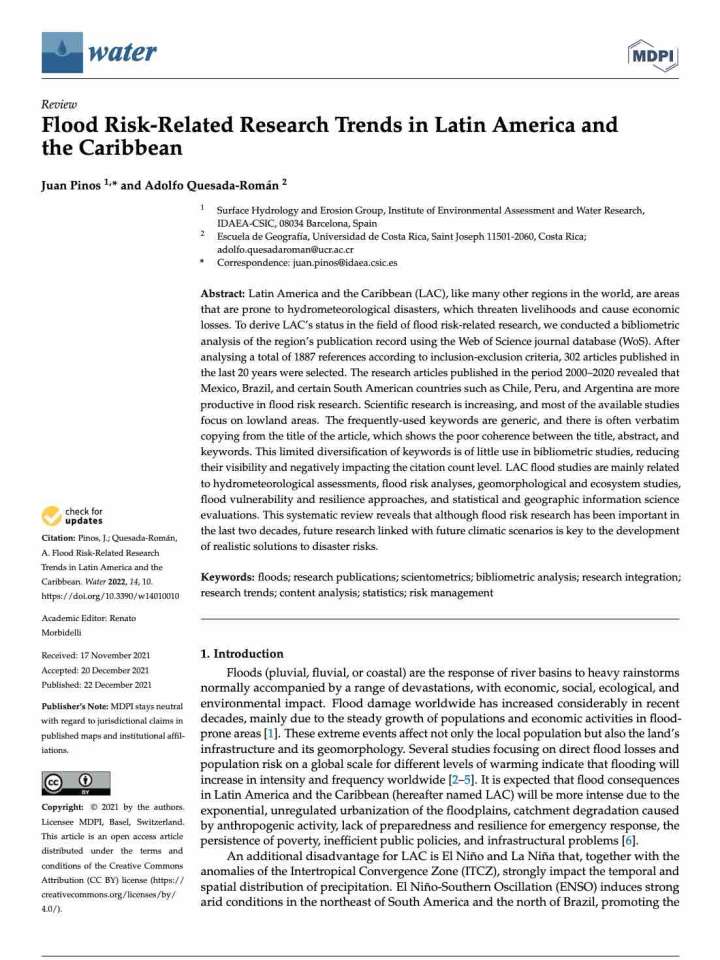Flood risk-related research trends in Latin America and the Caribbean
In this study the authors conducted a bibliometric analysis of the Latin America and Carribean region’s publication record using the Web of Science journal database (WoS), to derive the region's status in the field of flood risk-related research. According to the International Disaster Database (EM-DAT) of the Centre for Research on the Epidemiology of Disasters (CRED), flooding constitutes a major natural hazard, responsible for 45% of the recorded natural disasters in Latin America an the Carribean (LAC) since the beginning of the 21st century. Developed knowledge in LAC is very fragmented, and a bibliometric database of the research related to flooding does not exist.
Based on the conducted bibliographic analysis, it is expected that the number of flood risk studies and research papers will further increase, and that this process will be accelerated by the imperative need for climate change adaptation. The researchers suggest five emerging directions for future flood-related research in LAC:
- Intensification of the use of machine learning approaches and new satellite imagery products to improve flood prediction and flood early warning systems;
- Research with a focus on the standardization of post-flood data collection for model validation;
- Identification of the role vegetation plays in flood episodes;
- Search for adequate and cost-benefit structural and non-structural flood protection policies and measures; and
- Analysis of the interaction and effects when flooding occurs at different locations in river networks simultaneously. Based on past and present research, it is to be expected that the flood-related research community in LAC will develop flood risk reduction solutions in a timely manner.
Explore further
